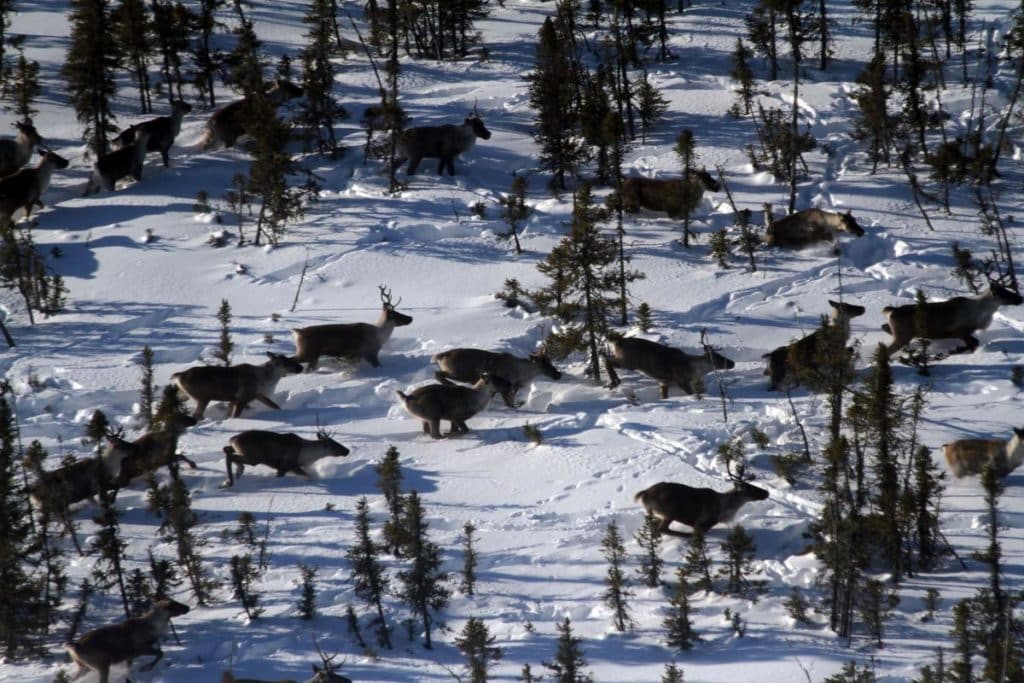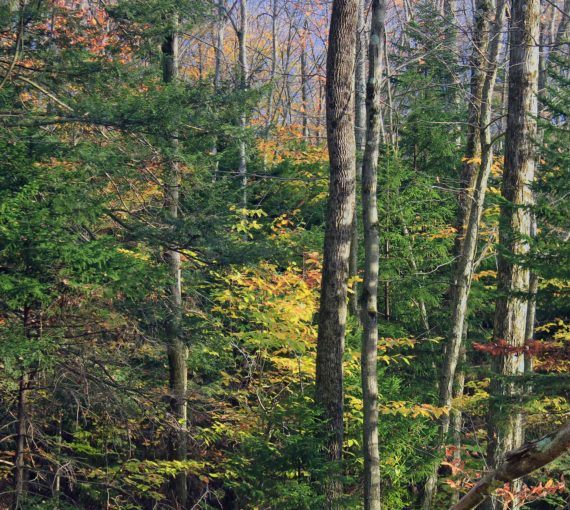
Environment Minister Steven Guilbeault affirmed that Ontario is not effectively protecting the habitat of boreal caribou. A federal caribou protection order will provide a much-needed opportunity for a provincial forestry reset. (Photo: Justina Ray)
Written by Rachel Plotkin, Boreal Project Manager, the David Suzuki Foundation, and Julee Boan, Boreal Partnership Manager, Natural Resources Defense Council.
Environment Minister Steven Guilbeault affirmed last week that Ontario is not effectively protecting the habitat of boreal caribou, a species threatened with extinction in Canada. Last month, he presented a similar assessment for Quebec.
Caribou are considered a “canary in the coal mine”: their decline exposes degradation in Canada’s boreal forest. Habitat disturbances, including roads and cuts associated with industrial logging, are a significant factor in their demise.
Instead of protecting critical caribou habitat as required under federal legislation, Ontario has exempted forestry activities from the provincial Endangered Species Act, ignored the federal mandate to develop caribou range plans, and refused to declare any targets for habitat protection or restoration.
On March 15, Ontario’s minister of environment, conservation and parks David Piccini pledged $29 million over four years to support habitat restoration and protection and research. By his side was the Ontario Forest Industries Association, which has publicly declared that these caribou are “far too numerous for the subspecies to be considered at risk,” that caribou decline is caused by factors that the government is “unable to control or incapable of measuring,” and that forests managed for industrial logging are leading to “healthier caribou populations.”
Hopefully their support for Ontario’s funding represents a change of heart!
The exposure of the province’s mishandling of caribou recovery comes at a time when forest management in Canada is under intense international scrutiny. Investigations are probing into the influence of multinationals in managing public forests, the efficacy of third-party sustainability certification, and interference by our federal government in American and European regulations to halt forest degradation.
Yet, logging industry lobbyists and Natural Resources Canada continue to double down on their self-appointed mantle of “global leader” in forest sustainability. They are quick to point the finger at deforestation in the Amazon — where trees are logged to make way for farms and cattle ranches — to establish a bar against which their own performance should be judged. But in doing so they have obfuscated the fact that forest degradation — the deterioration of the forest’s ecological value, structure, composition and function — is leaving future generations with less complex and resilient forest ecosystems than the ones we inherited.
Industry often asserts that protecting caribou habitat will be too much to bear, despite the fact that the provincial government recently claimed that it can sustainably double the amount of wood logged. In our current global economic landscape, market demand and mechanization tend to drive employment levels, and productivity is often increased by reducing labour inputs, as seen in other sectors.
Some companies are adapting to changing societal expectations, and some companies do put the environment and local people first.
Economists, journalists, foresters, biologists, environmentalists and citizens have all raised concerns about the sustainability of logging operations. We must rethink how sustainability is quantified and achieved.
Forest sustainability should include caribou survival and recovery.
A federal caribou protection order will provide a much-needed opportunity for a provincial forestry reset.
Originally published in the Toronto Star.
Our work
Always grounded in sound evidence, the David Suzuki Foundation empowers people to take action in their communities on the environmental challenges we collectively face.




